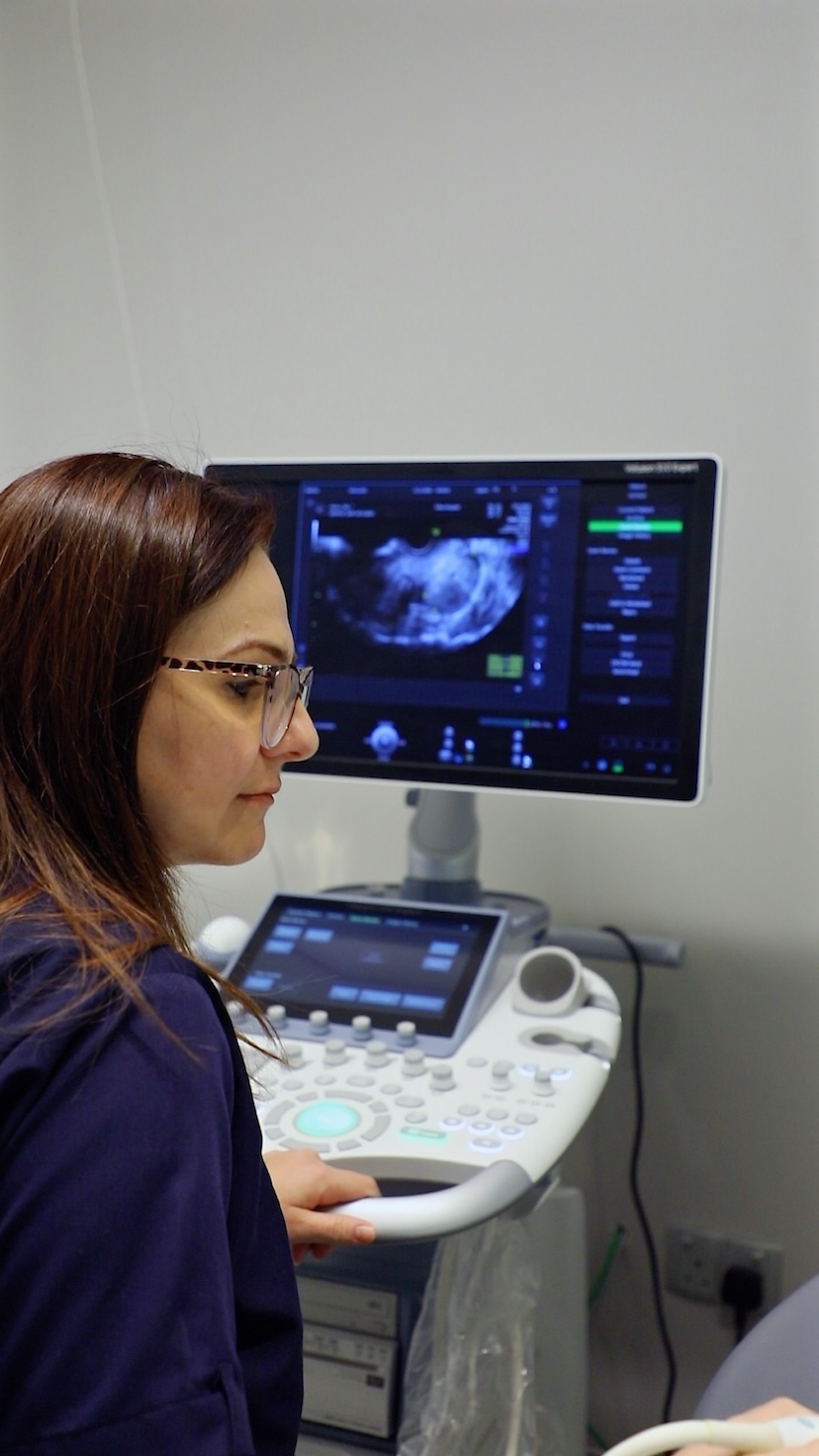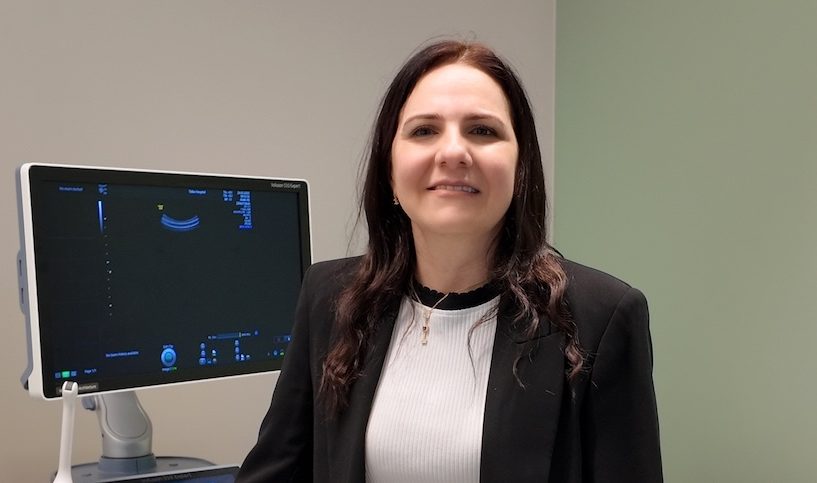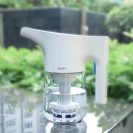From a young age, Dr. Sandra Geagea knew she was destined to be a doctor. “I decided to call myself a doctor when I was 10 years old,” she recalls. “I liked to pretend to be a doctor, making my own concoctions and pretending to take care of my brother. It was always a dream.” Unlike many who follow in family footsteps, Dr. Geagea’s passion for medicine was self-driven, leading her to a career dedicated to women’s health.
The OB/GYN is a firm advocate for preventive care, particularly in breast and cervical health. She frequently encounters misconceptions that prevent women from seeking early screening. “Many women believe that if they have no family history of breast cancer, they don’t need a mammogram,” she explains. “But in reality, one in eight women is at risk, regardless of genetics. It’s crucial to start regular mammograms at 40, or earlier if a family member was diagnosed before 50.”
Similarly, cervical cancer screening is often overlooked. “Women often think a vaginal swab is the same as a Pap smear, but it’s not,” she clarifies. “Pap smears detect changes in the cervix before they become dangerous. Since cervical cancer is almost entirely acquired, not inherited, screening is essential for early detection and prevention.”
With a growing number of women delaying marriage and childbirth, fertility concerns have shifted. “We’re seeing decreased ovarian reserves even in teenagers and young adults who aren’t yet thinking about marriage or children,” Dr. Geagea notes. “Egg freezing has become a valuable option—it’s like an insurance policy for the future.”
She also highlights advancements in fertility treatments, including genetic testing of embryos to prevent recurrent miscarriages and the ability to select a baby’s sex. “These developments are transforming family planning and offering couples more choices than ever before.”
“Pregnancy management has progressed significantly,” Dr. Geagea says. “We can now predict complications like high blood pressure or fetal growth issues early in pregnancy and take preventive measures, such as using aspirin, to mitigate risks.”

For menopausal women, treatment options have vastly improved. “Hormone replacement therapy (HRT) used to be controversial, but now we understand its benefits. Bioidentical hormones, which closely mimic natural hormones, have made HRT safer and more effective,” she explains. “There are also non-hormonal alternatives that ease menopause symptoms without the risks once associated with HRT.”
Dr. Geagea is particularly concerned about how diet and lifestyle choices are affecting young girls. “We’re seeing an alarming rise in early puberty, likely influenced by processed foods and hormone-laden meats,” she warns. “Obesity and unhealthy eating habits are disrupting hormonal balance in young children, leading to reproductive health issues later in life.”
She also stresses the importance of regular check-ups for young girls. “Once a girl reaches puberty, an annual ultrasound to monitor her uterus and ovaries is essential. Many young women have ovarian cysts that go undiagnosed.”
“Period pain isn’t always just ‘normal,’ and it’s important to differentiate between typical cramps and something more serious,” Dr. Geagea advises. “If the pain starts before menstruation, it could be endometriosis, which requires medical attention.”

She warns against waiting too long to take pain medication. “The biggest mistake women make is waiting until the pain becomes unbearable. Taking painkillers like ibuprofen or paracetamol at the first sign of bleeding is much more effective.”
Dr. Geagea sees a strong link between gut health and overall well-being. “What you eat directly affects your mental health, menstrual cycles, and reproductive health. Prioritizing a healthy diet, rich in fermented foods, can significantly improve hormonal balance and reduce PMS symptoms.”
Exercise is another key factor. “Even just 25 minutes of physical activity a day can improve reproductive health, regulate cycles, and boost mental resilience,” she says. “Our hormonal cycles affect our emotions and productivity, but we can counteract these effects with a healthy lifestyle.”
Dr. Geagea emphasizes the importance of regular health screenings:
- Pap Smear: “Starting at age 21, every sexually active woman should have a Pap smear every three years to detect cervical changes caused by HPV.”
- Mammograms: “By age 40, an annual mammogram is necessary, regardless of family history.”
- Pelvic Ultrasounds: “Young girls should have yearly ultrasounds once they reach puberty to monitor reproductive health.”
Dr. Geagea urges women to pay attention to warning signs, such as:
- New or severe period pain—especially if accompanied by nausea or vomiting.
- Pain unrelieved by common painkillers—which could indicate endometriosis or another serious condition.
- Unexplained pelvic pain—requiring immediate medical evaluation.
“Women’s health is not just about managing illness; it’s about proactive care and knowledge,” Dr. Geagea concludes. “Understanding your body and prioritizing regular screenings can make all the difference in living a long, healthy life.”
Taiba Hospital is located in Sabah Al Salem, off of route 30 on Road 3. Call them 24 hours at 180 80 88. For updates and information, visit the website taibahospital.com, and follow them on Instagram @taibahospital.











